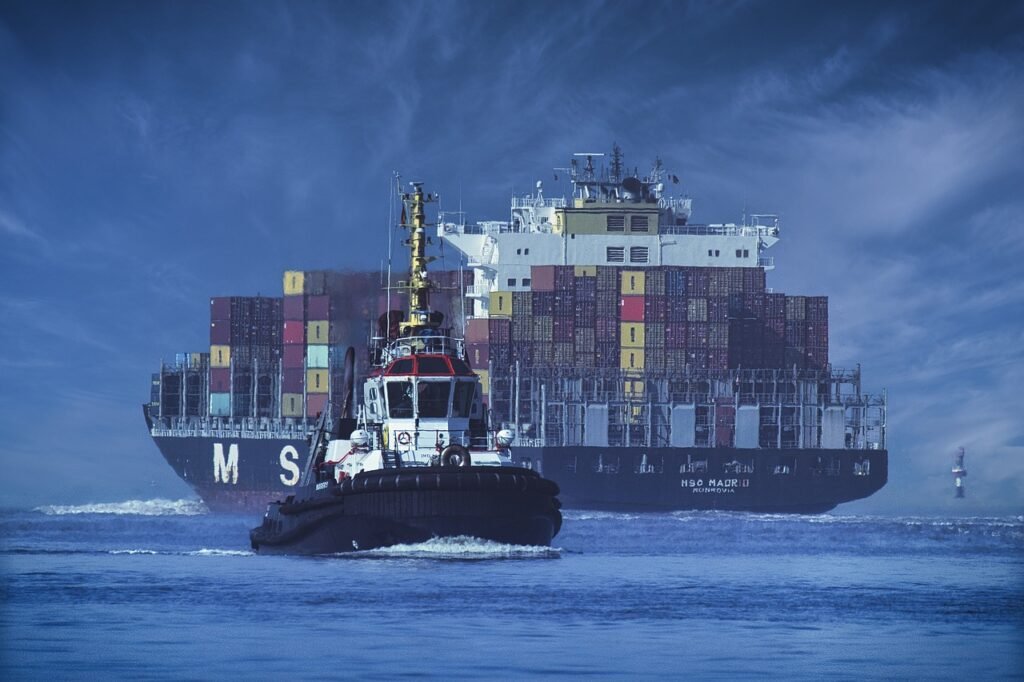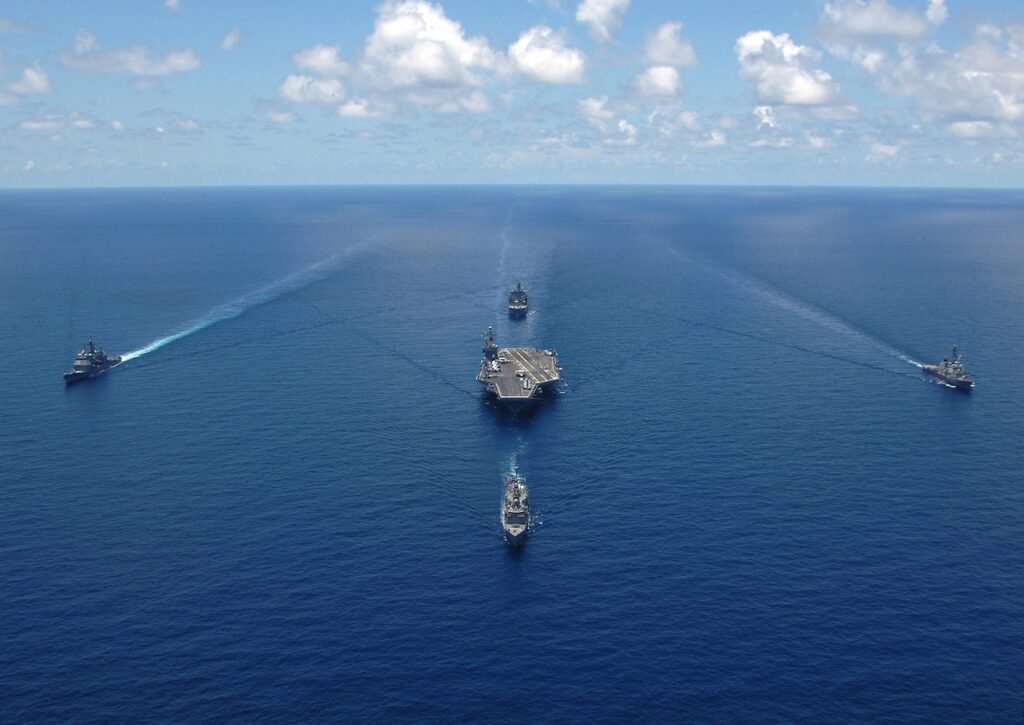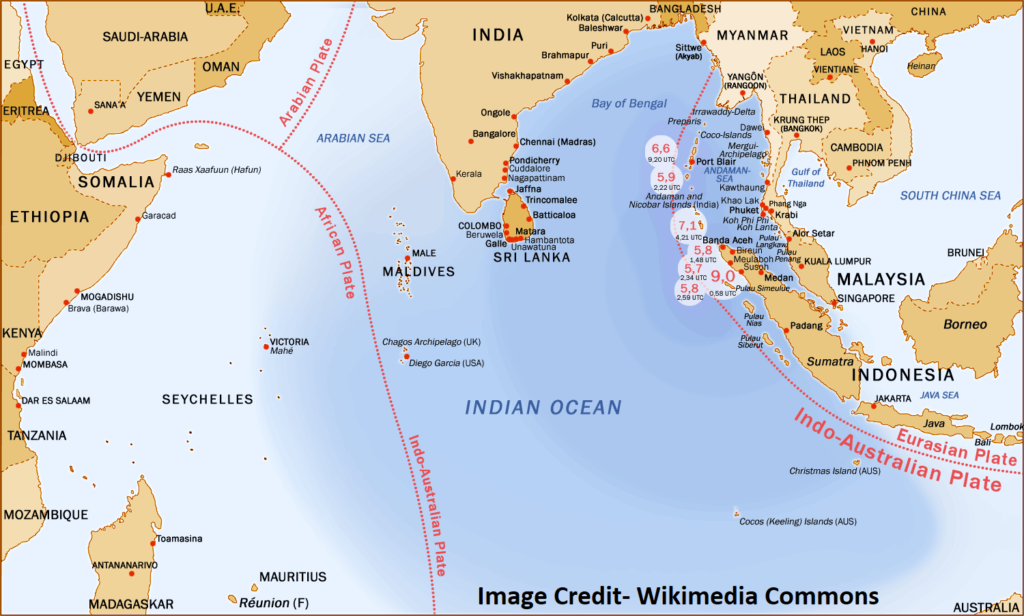In recent years, the Indian Ocean has become a focal point of strategic interest for Western countries, marking a significant shift in geopolitical dynamics. As maritime routes gain prominence in global affairs, nations from the Western hemisphere are increasingly recognizing the importance of the Indian Ocean in shaping economic, security, and geopolitical outcomes.
This blog explores the factors contributing to the growing interest of Western countries in the Indian Ocean and the implications of this evolving engagement.
Table of Contents
Strategic Significance Of Indian Ocean
The Indian Ocean holds unparalleled strategic significance as a vital maritime thoroughfare connecting the major economies of Asia, Africa, and the Middle East. Serving as a critical trade route, approximately 80% of global seaborne oil trade passes through its waters, making it a linchpin for global energy security.
The region is home to key chokepoints such as the Strait of Hormuz and the Strait of Malacca, which control the flow of goods and resources between the Atlantic and Pacific Oceans. Its geostrategic location makes the Indian Ocean a focal point for international trade, with nations vying for control over its sea lanes to secure economic interests.
Beyond its economic importance, the Indian Ocean has become a geopolitical theatre where major powers look for influence and strategic advantage. The region’s vast expanse, encompassing littoral states from East Africa to Southeast Asia, makes it a critical arena for power projection and military presence.
Control over the Indian Ocean allows nations to shape regional security dynamics, influencing the balance of power in the broader Indo-Pacific region. As the global order continues to evolve, the strategic significance of the Indian Ocean remains paramount, with its waters serving as a nexus for economic interests, geopolitical competition, and maritime security
Economic Opportunities and Trade Routes
The Indian Ocean is a critical conduit for global trade, connecting major economies in Asia, Africa, and Europe. Western nations, driven by a quest for economic opportunities, have turned their attention to the vast potential of this maritime region. With approximately 80% of global seaborne trade in oil passing through its waters, the Indian Ocean offers a strategic gateway for Western countries to secure and diversify their energy supplies.
Moreover, the burgeoning economies of South Asia and Southeast Asia present lucrative markets for Western goods and services. As a result, Western nations are keen on fostering economic ties and participating in regional development projects to harness the economic potential of the Indian Ocean

Security and Maritime Stability
The Indian Ocean’s geostrategic significance as a gateway for global trade also makes it a focal point for security considerations. Western countries, mindful of the need to ensure maritime stability, have intensified efforts to combat piracy, illegal fishing, and other transnational threats in the region.
Partnerships between Western navies and those of Indian Ocean littoral states aim to enhance maritime security. The Western interest in maintaining a rules-based order and freedom of navigation aligns with the broader goal of preserving stability in the Indian Ocean, thereby safeguarding global trade routes.

Strategic Alliances and Partnerships
To advance their interests in the Indian Ocean, Western countries are actively cultivating strategic alliances and partnerships with key regional players. India, in particular, has emerged as a linchpin in Western strategies for the Indian Ocean region. The U.S.-India partnership, along with collaborations with other Quad members (Australia and Japan), exemplifies this approach.
Additionally, European powers such as France and the United Kingdom have strengthened their naval presence and engaged in joint exercises with regional partners, signaling a commitment to enhancing security and stability in the Indian Ocean
India's Ocean
Situated at the heart of the Indian Ocean, India enjoys a unique geostrategic position that bestows upon it both opportunities and responsibilities. The country’s vast coastline and maritime interests align with its historical legacy as a maritime trading nation. As one of the fastest-growing major economies, India’s stake in securing the Indian Ocean’s stability and free navigation is paramount.
India’s economic growth hinges on secure sea lanes for the uninterrupted flow of trade. With a burgeoning population and expanding economy, India is reliant on energy resources, a significant portion of which is imported through the Indian Ocean. Ensuring the safety and security of these sea routes is crucial for India’s energy security and economic prosperity.
Moreover, India’s “SAGAR” (Security and Growth for All in the Region) doctrine emphasizes inclusive and sustainable development in the Indian Ocean region. By fostering economic partnerships, connectivity, and maritime cooperation, India aims to play a constructive role in the region’s stability and growth.
Recognizing the evolving geopolitical landscape, India has invested in enhancing its naval capabilities. The Indian Navy, with its modern fleet and maritime capabilities, plays a pivotal role in ensuring the security of the Indian Ocean. India’s naval prowess is not just confined to defensive measures; it also encompasses power projection and the ability to respond to emerging security challenges.
India’s proactive approach in countering piracy, conducting joint naval exercises, and participating in maritime security initiatives underscores its commitment to maintaining a rules-based order in the Indian Ocean.
India’s partnerships with countries like the United States, Japan, Australia, and those in the Indian Ocean Rim Association (IORA) demonstrate a commitment to collective security and prosperity in the region.
Containing China's Influence
The rise of China as a major player in the Indian Ocean has prompted Western countries to recalibrate their strategic approach to the region. China’s Belt and Road Initiative (BRI) and the expansion of its naval presence in the Indian Ocean have raised concerns about Beijing’s growing influence.
Western nations, particularly the United States and its allies, view the Indian Ocean as a crucial theater in the broader competition for influence in the Indo-Pacific region. Efforts to counterbalance China’s expanding footprint include diplomatic initiatives, military partnerships, and investments in infrastructure projects to promote alternative connectivity options.
Conclusion
The growing interest of Western countries in the Indian Ocean is a multifaceted phenomenon driven by economic, security, and geopolitical considerations. As the region becomes a nexus of global trade and strategic competition, Western nations are actively shaping their policies to navigate the complex dynamics of the Indian Ocean. The evolving partnerships, security initiatives, and economic engagements underscore the significance of this maritime space in the broader canvas of international relations

